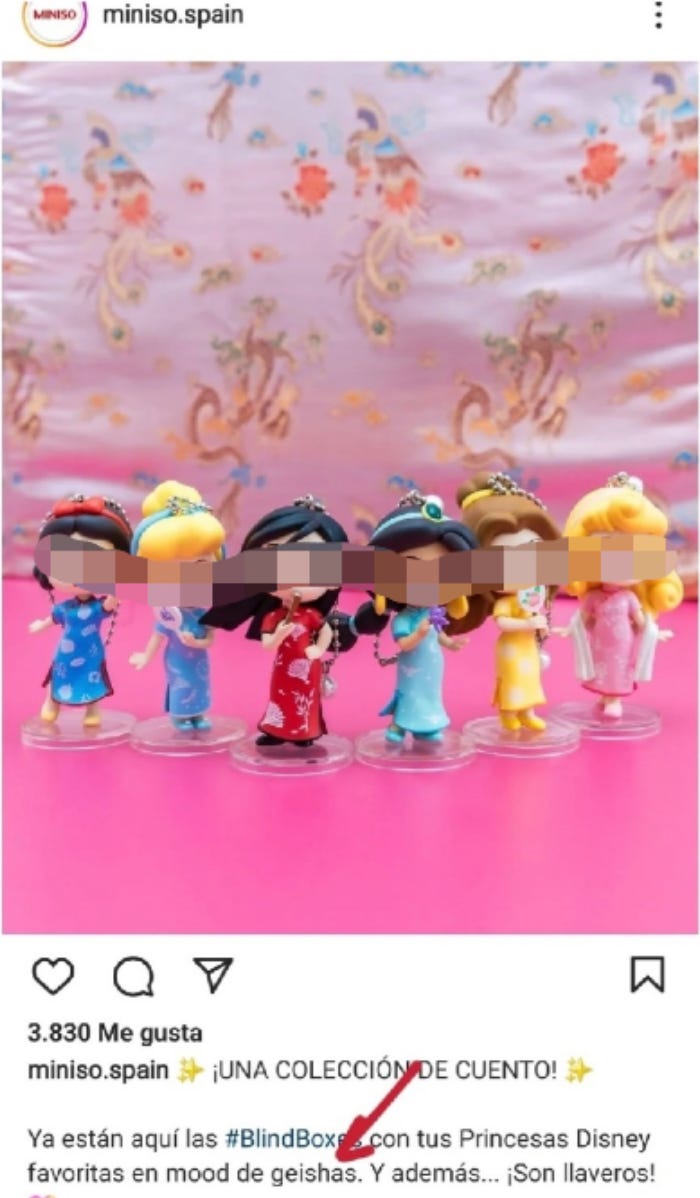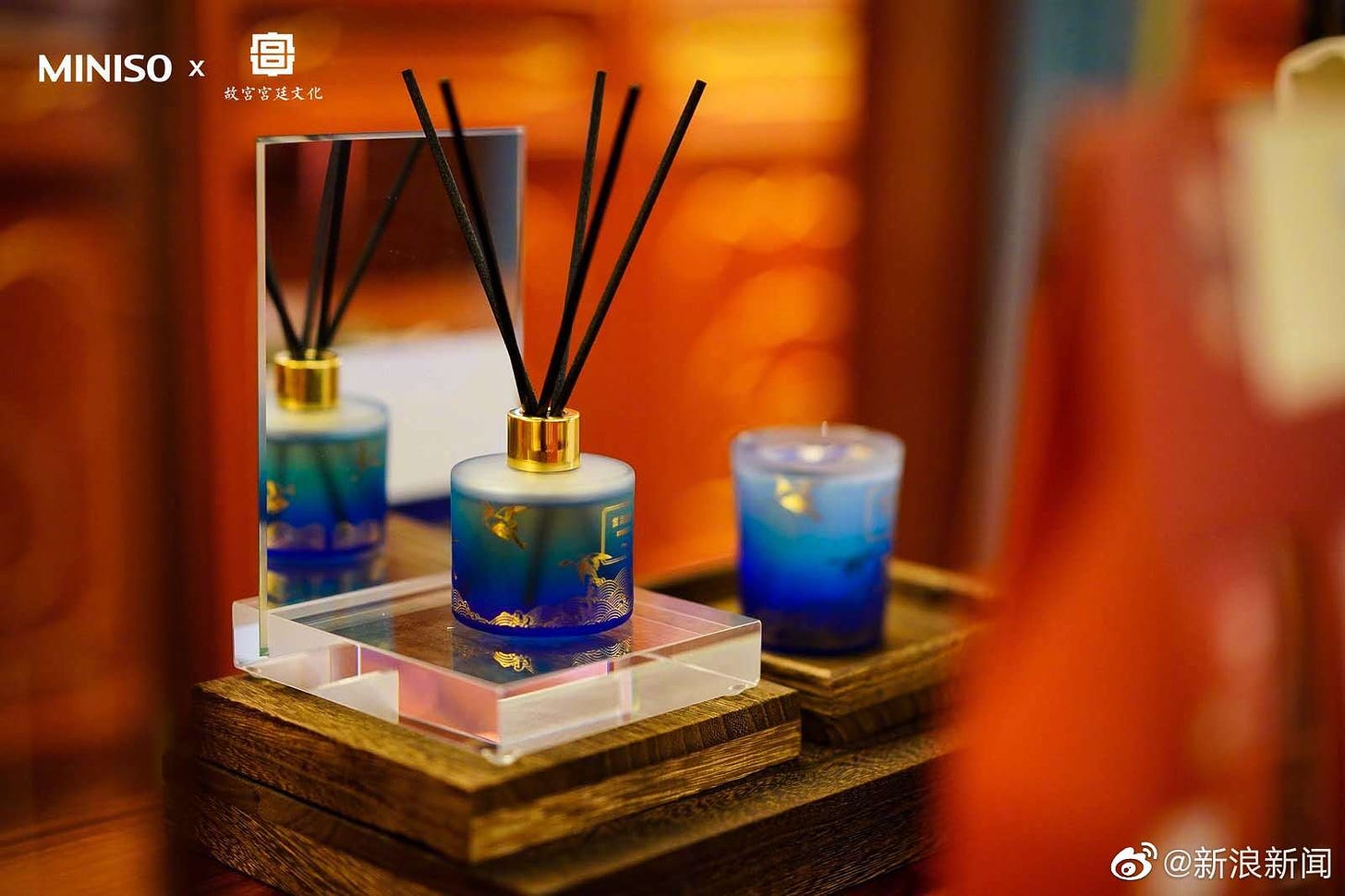
The Miniso Saga, Nationalist Consumer Boycotts, and Other Distractions
Deviations from “correct” civilizational discourse are a problem of fundamental political concern.
Miniso, the go-to shop for minimalist Japanese cool on a shoestring budget, is now a fixture of shopping centres around the world with more than 5000 stores across at least 99 countries. You’ll be forgiven for thinking it’s actually from Japan: when it arrived in Mexico, local outlet Expansión gushed about the new “cadena japonesa”.
But the love affair with Miniso came to an abrupt end this week on Chinese social media. And it’s not patriotic pinkies picking a new Japanese company to target.
ChinaTalk is a reader-supported publication. To receive new posts and support my work, consider becoming a free or paid subscriber.
Miniso is actually a Guangzhou-based lifestyle product retailer founded by Chinese entrepreneur Ye Guofu. (The company claims it was co-founded by a Japanese designer named Junya Miyake, but we aren't sure if he exists.) It’s Chinese name is 名创优品; now, in a corporate statement, it has apologized for its branding tactics and promised “de-Japanification work”.
[Jordan: my favorite store in China was a more stylish Miniso knock-off, entitled Nome. Also a Guangzhou-based firms they fashioned themselves as Swedish and had giant photos of Nordic-looking white guys in their stores were not real designers. Huxiu did a great piece on them a few years back.]
What prompted this? A few weeks ago, Chinese social media users found a post on Miniso’s Spanish Instagram account selling qipao-clad Disney dolls as “Japanese geisha.”
How big is this, really?
Cue the patriotic boycott. With 2442 likes, the third top comment under Miniso’s corporate statement on Weibo reads, “Don’t bother. Please close your stores, thank you.”
Only two weeks in, it’s hard to tell whether viral calls to action are having an impact on sales. It certainly doesn’t seem to be escalating to anything comparable to the boycotts over Xinjiang cotton last spring, which led to H&M’s China sales slumping by 41% in the most recent quarter and being practically wiped out of eCommerce until this month.
Meanwhile, Miniso’s scandal didn’t even get a hot take from the Communist Youth League. Uyghur forced labour, and further impacts on sanctions and global reputation, are a far more sensitive “bottom line” for the CCP than corporate weaboos.
Appropriating trendy Japanese aesthetics for business isn’t new, particularly when it comes to fashion and lifestyle: UK consumers have long been familiar with Superdry, a clothing chain strewn with barely literate Japanese typography and founded by two white guys in Cheltenham.
While potentially derisible and cringey, it’s little more than an annoying symptom of globalization; Japan’s fashionable industries are hardly marginalized in the worldwide economy, and awkward attempts to profit from imitation aren’t thinning out the Uniqlo bosses’ pockets. (Zero-Covid is, though.) Even People.cn didn’t denounce Miniso in particularly strong terms: “Industry insiders say that Miniso’s logo and products are all designed with Japanese styles in mind, so that customers associate them with brands like Uniqlo and Muji. These kinds of corporate positioning and marketing strategies aren’t notable. The key is not to make mistakes in matters of principle, and to not deviate from major issues of right and wrong.”
Why do people care?
Indeed, which “matters of principle” did Miniso violate? The People.cn opinion piece seems tepid at first, but teaches a masterclass in turning a new cycle into citizen-generated propaganda. It’s based on a viral Weibo comment from a user who claims to be a former Miniso employee, saying that one question in internal knowledge tests for promotion goes, “What kinds of songs aren’t allowed to be played in Miniso stores?” The answer, apparently, is “Chinese-language songs.”
China Newsweek’s reporters phoned multiple Miniso stores and got a mixed bag. Some staff say that they indeed only play English-language or instrumental songs, while others say that their stores have no rules on music. (As anyone who wasted their youth in Shenzhen shopping complexes will tell you, it’s not at all rare to find shops that don’t play Chinese songs much.) Netizens also managed to dig up some photos of Miniso executives signing deals abroad while flying Japanese flags — the bamboozlement apparently ran into the highest echelons.
This line from a nationalist Zhihu account is starting to feel a bit déja vu: “’brand promotion strategies are one thing, but the country to which the brand belongs and its national flag are major questions of right and wrong.“
The original People.cn line was deliberately vague and leaves much room for the imagination — allow a Big V to fill in the gaps:
@NaughtyGobulo: “[Miniso] makes money off of their compatriots while prostrating themselves before Japanese guizi. Signing contracts under a Japanese flag is a matter of basic values; not being able to tell the difference between a geisha and qipao is a typical case of blind foreign worship. To put bluntly, this is modern-day race-traitor behavior. Sure, they’re registered in Japan, but their hukou isn’t in Japan.
“It’s like sticking leeks into a pig’s nose and pretending it’s an elephant. Just like the crab-bathing scam, packaging labels grew Miniso a shell and laundered it into some exotic brand. What’s the point of pretending to be guizi*? Miniso’s manufacturing and design are both based in China, and the products aren’t meant to be fakes either.*
“Cultures can’t be mixed up and principles shouldn’t be muddied. This is a fundamental stance and basic bottom line. Frankly, that a domestic super-fake brand wrapped in guizi packaging can’t tell the difference between qipao and geishas is either a problem of management or a problem of thought.”
[For the uninitiated and Mid-Autumn-crabless, the crab-bathing scam involves vendors placing hairy crabs raised elsewhere into the beloved Yangcheng Lake for a few days before selling them as Yangcheng crabs.]
The fear of “mixing up” cultures compounds insecurities about East Asian cultures’ connective similarities (which threaten claims of unique historical lineage) and legacies of Japanese racial colonialism, producing a particularly toxic anti-Japanese wave. Eager to violently impose unenforceable cultural borders, nationalists have carried out shocking abuses of power — like in the case of Suzhou police detaining a woman for wearing a kimono. “Naughty Gobulo” spells out the line of logic originated by the People.cn commentary: that deviations from “correct” civilizational discourse are a black-and-white problem of fundamental political concern.
Points about the pointless
People are encouraging paranoia about Miniso’s marketing while the property crisis persists, Chongqing is in an enforced blackout, and the Yangtze River is literally running dry. As a result, one is tempted to figure — or rather hope — that much of the frenzy is state-orchestrated distraction. Do propaganda apparatuses command these self-media commentary leaders? It’s hard to say, but Big Vs whose content consistently perform well certainly profit from tech giants like Sina Weibo, who execute censorship guidelines.
The idea that manufactured distractions threaten civil society is not uniquely Chinese. Western progressives frame “culture wars” as distractions. Scholars suggest that Israel times attacks on Palestinians to US news cycles in order to maximize distraction. The existence of debate can even be a distraction: if only one opinion is allowed, yelling at other people is a waste of time.
We know that China’s online propagandists use distraction as tools of information control, but we don’t know if any particular incident is inauthentic. When I search “名创优品” on Weibo today and sort by Newest (August 23), I mostly see haul videos and influencer hashtags. No one seems to mind its hukou.
So what’s next? I’ll let a new Miniso ad speak for itself:
ChinaTalk is a reader-supported publication. To receive new posts and support my work, consider becoming a free or paid subscriber.











"As anyone who wasted their youth in Shenzhen shopping complexes will tell you, it’s not at all rare to find shops that don’t play Chinese songs much."
That "our store is closing" vaguely jazzy musical score that seems near-universal in supermarkets across the country is entirely instrumental, and I don't believe the instruments are traditionally Chinese either.
Should we burn them all down too?